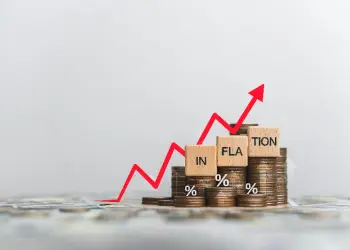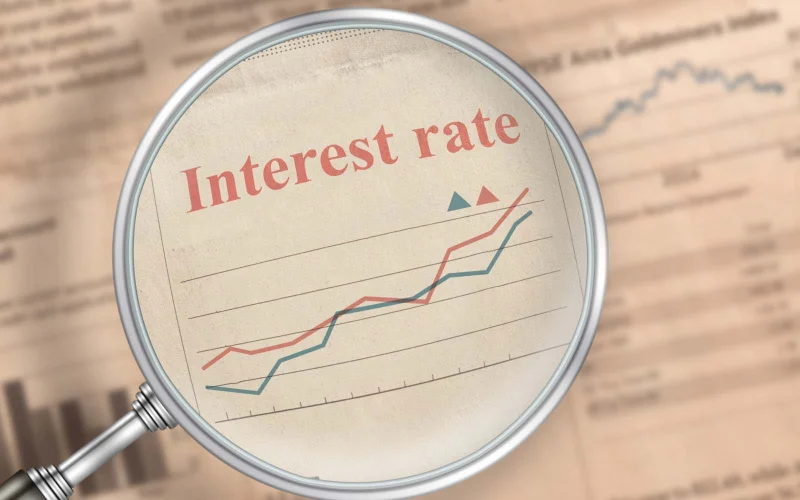trending
neon
Cirque du Soleil offers summer ticket deals
dining out
Celebs ditch the Strip for iconic Henderson restaurant
july 
trending
neon
Cirque du Soleil offers summer ticket deals
dining out
Celebs ditch the Strip for iconic Henderson restaurant
july 

he wealth management industry in the U.S. is transforming under changing regulations. This article explores how future regulatory shifts in areas like tax laws, ESG investing, and financial technology will shape the landscape of wealth management and investor strategies




The wealth management industry in the U.S. is constantly evolving, and the future will undoubtedly be influenced by regulatory shifts. From tax law changes to the rise of sustainable investing, regulations are shaping how financial advisors manage clients' portfolios and assets. In this article, we explore how evolving U.S. regulations are expected to impact wealth management strategies and what investors and wealth managers can expect in the coming years.
Wealth management is governed by an intricate network of laws and regulations at the federal and state levels. Key regulatory bodies such as the Securities and Exchange Commission (SEC) and the Financial Industry Regulatory Authority (FINRA) oversee financial services, while the Internal Revenue Service (IRS) plays a significant role in shaping tax strategies. Changes from these regulatory bodies have far-reaching implications for wealth managers and their clients.
1. Fiduciary Rule and Investor Protection
The Fiduciary Rule, which requires financial advisors to act in the best interests of their clients, has been a crucial aspect of recent regulatory changes. While some provisions of the rule have been relaxed, it is likely that fiduciary standards will continue to influence wealth management. Financial advisors will need to focus more on transparency, fee structures, and offering unbiased advice that aligns with client needs.
2. Tax Law and Its Impact on Investment Strategies
Tax laws directly affect wealth management strategies. With potential tax reforms on the horizon, wealth managers will need to adapt to changing estate tax rules, capital gains tax policies, and tax-deferred retirement account regulations. Understanding these shifts will be crucial for wealth managers to devise strategies that minimize tax liabilities for clients.
3. ESG and Sustainable Investing
Environmental, social, and governance (ESG) criteria are becoming increasingly important in wealth management. New regulations may soon require wealth managers to disclose more about the ESG factors influencing investment decisions. Sustainable investing is not just a trend—it’s expected to be a significant force in future wealth management strategies.
1. Regulatory Technology (RegTech)
The rise of RegTech tools is reshaping how wealth managers comply with complex regulations. These technologies automate compliance processes, reduce errors, and streamline reporting. Wealth managers will increasingly use AI, big data, and cloud technologies to ensure regulatory compliance while providing clients with real-time insights into their portfolios.
2. Robo-Advisors and Financial Planning Tools
Technology is also revolutionizing how wealth management services are delivered. Robo-advisors, which use algorithms to provide financial advice, are making it easier and more affordable for investors to receive tailored wealth management. Wealth managers will need to integrate these tools into their practices to offer comprehensive financial services, especially for younger, tech-savvy clients.
Clients’ expectations are shifting as they demand more personalized, transparent, and responsible investment strategies. Wealth managers will need to respond to these changing expectations by offering custom solutions that align with individual values and financial goals.
1. Demand for Personalization
Today’s investors expect highly personalized advice and strategies that cater to their unique financial situations. Clients are seeking customized portfolios that reflect their long-term goals, risk tolerance, and even personal values. Wealth managers will need to use technology and data analytics to offer more tailored solutions.
2. Social Responsibility and Impact Investing
An increasing number of investors are aligning their portfolios with their social and environmental values. As impact investing becomes more popular, wealth managers will be required to provide options that allow clients to invest in socially responsible projects while still achieving solid financial returns.
1. Increased Focus on Education and Transparency
As the regulatory landscape continues to evolve, wealth managers will need to place more emphasis on educating clients about the strategies they are using and how regulations impact their investments. Transparency will be critical, and wealth managers who provide clear, accessible information will be better positioned to retain clients.
2. Expansion of ESG and Sustainable Investment Products
Wealth management firms are expected to integrate more ESG-friendly products into their investment offerings. With new regulations potentially requiring more ESG disclosures, wealth managers will need to ensure that they meet the growing demand for sustainable investment options.
3. The Growing Role of Artificial Intelligence and Data Analytics
In the coming years, artificial intelligence (AI) and data analytics will become even more integral to wealth management. These technologies can help wealth managers predict market trends, optimize investment portfolios, and offer more precise financial planning tools. Wealth managers who embrace these innovations will be able to offer clients a competitive edge.
The future of wealth management in the U.S. is intrinsically tied to ongoing regulatory changes. As tax laws, fiduciary standards, and ESG criteria evolve, wealth managers will need to adapt their strategies to stay compliant and competitive. By leveraging technology and staying ahead of regulatory shifts, wealth managers can offer clients customized solutions that align with their financial goals and values. The regulatory environment may be complex, but it also presents opportunities for innovation and growth within the wealth management sector
he wealth management industry in the U.S. is transforming under changing regulations. This article explores how future regulatory shifts in areas like tax laws, ESG investing, and financial technology will shape the landscape of wealth management and investor strategies
the latest

Banking System Reforms: How They Affect Your Savings and Investment Accounts
Banking system reforms are reshaping the financial landscape, and these changes could impact your savings and investment accounts. From interest rates to new regulations, understand how these reforms will affect your financial future. This article provides insights into the potential implications and how you can adapt your strategy to thrive in the evolving financial environment

Inflation vs. Investment: What to Do with Your Money in 2025
As inflation continues to challenge global economies, understanding how to protect and grow your wealth becomes more crucial than ever. In this article, we’ll explore how inflation is affecting investments in 2025 and provide expert advice on what to do with your money to safeguard your financial future. Whether you're new to investing or an experienced investor, learn the best strategies for navigating this economic climate.

U.S. Dollar's Rise: Impact on Foreign Exchange and Investments
The strengthening of the U.S. dollar is shaking up global markets, affecting everything from foreign exchange rates to international investments. In this article, we analyze how the dollar's rise impacts global trade, investment strategies, and economic stability. Understanding these effects is crucial for businesses and investors navigating the increasingly globalized financial landscape

Treasury Bond Yields Hit Record Lows: What It Means for You
Treasury bond yields have reached record lows, marking a significant shift in the financial landscape. As yields decline, the return on investments such as bonds and savings accounts also decreases. This article discusses the potential impact of these record-low yields on various forms of investment and offers guidance on how to navigate these changes in the financial market

Interest Rate Hikes: How It’s Affecting Personal and Corporate Finances
Rising interest rates are reshaping both personal and corporate finances. From mortgages and credit card payments to business borrowing costs and profits, the effects are profound. As central banks increase rates to curb inflation, both consumers and companies are adjusting their financial strategies. This article explores the current and long-term impacts of interest rate hikes on the economy.

Biden’s Economic Plan: Effect on Dollar & Money Supply
The economic policies introduced by President Biden have far-reaching implications for the U.S. dollar and the broader money supply. With the country facing various challenges, including inflation and recovery from the pandemic, Biden's approach involves major fiscal changes that could significantly affect the financial landscape

New Cryptocurrency Regulations Impacting Retail Investors in the U.S.
Recent changes to cryptocurrency regulations in the United States are having significant effects on retail investors. This article explores the new rules and what they mean for individuals looking to invest in digital currencies.

How U.S. Investment Policies Shape Financial Stability
U.S. investment policies play a crucial role in shaping financial stability by influencing capital markets, interest rates, and economic growth. Regulatory frameworks and government interventions determine risk levels, investor confidence, and long-term economic sustainability

How U.S. Economic Policies Are Reshaping Investment Trends
With shifting U.S. economic policies, investors are adjusting their strategies to respond to new market dynamics. This article explores the key policy changes and their influence on investment decisions